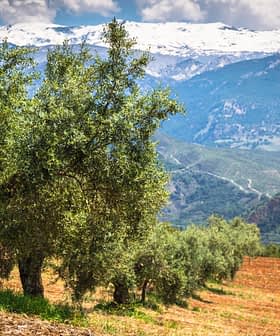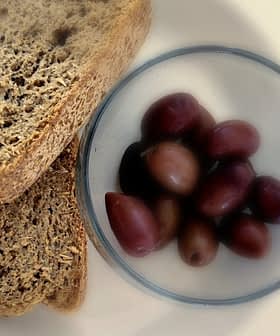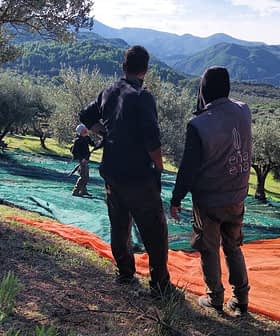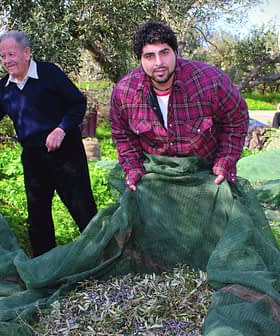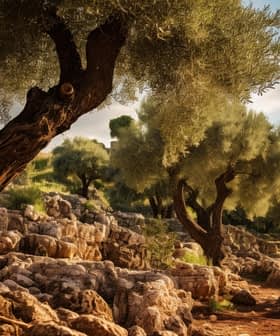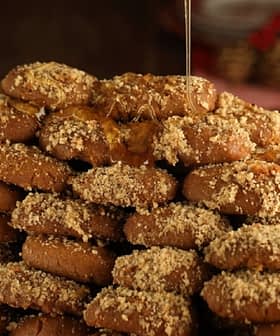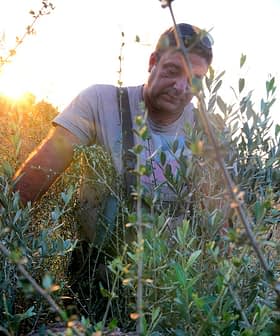Nikos Zachariadis, Agricultural Cooperative of Kritsa
Nikos Zachariadis, chairman of the Agricultural Cooperative of Kritsa, has helped transform the virtually unknown olive oil from Crete into an internationally recognized product, winning awards and impressing even the Greek Prime Minister. Zachariadis attributes the success of the olive oil to the dedication of the cooperative’s producers, innovative production methods, and a partnership with a private company that has allowed for worldwide distribution.
Many have called it the best in the world, yet until a few years ago the delicious extra virgin olive oil from these rugged Cretan hillsides was virtually unknown, that is until Nikos Zachariadis came into the picture.
Zachariadis is the chairman of the Agricultural Cooperative of Kritsa (ACK), a co-op that has as its members over 900 experienced olive oil producers. All of them are from the area of Kritsa, a village in Crete that is home to some of the oldest olive trees in Greece.
Producers of Kritsa have an almost religious devotion to their olive production
Today the quality of this olive oil is recognized internationally. It has won numerous awards most notably the first prize in the IOC 2008 Mario Solinas Awards. The prime minister of Greece, George Papandreou was so impressed that he paid a special visit to the facilities of the cooperative, while journalists and nutrition professionals flock from all over the world to visit the co-op and taste the exquisite olive oil. When asked about the success of the olive oil from the cooperative, Zachariadis candidly replies “The olive oil producers of Kritsa have an almost religious devotion to their olive production, we have a good cooperative, effective management with a vision, and of course a good product”.
 Zachariadis describes the innovative mode of production. “All the residents of Kritsa are partners at the co-op, and we apply the common grinding of the olives,” he says. However, the key to quality is the timing. “The olives are ground together shortly after they have been picked, and this has the advantage that the olives do not sit in storage for prolonged periods of time which may result in higher acidity as well as loss of other characteristics,” he points out. He also attributes the fine quality of the oil to the ideal soil and microclimate of the area “the dry and warm environment with high levels of sunlight contribute to the correct development of the olive tree,” he adds.
Zachariadis describes the innovative mode of production. “All the residents of Kritsa are partners at the co-op, and we apply the common grinding of the olives,” he says. However, the key to quality is the timing. “The olives are ground together shortly after they have been picked, and this has the advantage that the olives do not sit in storage for prolonged periods of time which may result in higher acidity as well as loss of other characteristics,” he points out. He also attributes the fine quality of the oil to the ideal soil and microclimate of the area “the dry and warm environment with high levels of sunlight contribute to the correct development of the olive tree,” he adds.
But is it enough to have a successful product? It helps, but no, according to Zachariadis. “You need good management, a vision, a drive and a good product,” he points out. Until 2005 this award-winning olive oil was sold in plain metal cans and other containers with no labels to the locals. This is a common practice in Greece and as a result many good olive oils may never enjoy the recognition that they deserve. Zachariadis felt that selling such a superb product in this way was criminal. “I believe that a good thing should be treated well,” he emphasizes, and compares a good olive oilto a precious piece of jewelry. “If a piece of jewelry is neglected and hidden, even if it is valuable nobody will acknowledge it. Once you package it and present it in an attractive manner, it automatically acquires value and gains recognition,” Zachariadis observes. And this is the train of thought that he had when he first realized the value of this underestimated olive oil of his birthplace.
Although the product is regarded as one of the best olive oils in the world, Zachariadis believes that it is undervalued in terms of price. “There is a confusion among customers as to the different qualities of extra virgin olive oil. For example our olive oil is cold pressed which means that we grind the olives at a temperature between 26 and 28 degrees celsius, anything above that is destructive,” he explains. “It is in the discretion of the producer whether high or low temperatures are used during the processing of the olives. When you grind at a higher temperature the quality of the oil is affected negatively, but yet both types of oils have a similar price,” he concludes.
Zachariadis mentions the recent effort of top quality olive oil producers from around the world to develop a new category of olive oil. “We participated in a conference organized by UC Davis with the participation of several high quality producers from Italy, Spain, and California in an attempt to redefine the ideal for the perfect olive oil and create a new category, the super extra virgin olive oil,” he says.
Zachariadis became president of the cooperative in 2005. His success can be attributed to a management and leadership style that he attained from his previous career in the military. “When I returned to my birthplace and became involved with the cooperative, I had a certain vision for promoting this superior olive oil,” he says proudly. After that, he took some strategic steps, which eventually lead to worldwide recognition of the oil. “We acted with innovation. I met with the president of Gaea an internationally-known private company which sells and produces quality Greek agricultural products. We developed a new company Kritsa-Gaea. This was the first time a Greek agricultural cooperative collaborated with a private company,” Zachariadis explains. From then on development exploded. “Because of this partnership, and the network Gaea provided us, we were able to develop and spread not only outside of Crete but also outside of Greece,” he notes. Now 70% of the olive oil from Kritsa is being exported to countries all over the world such as the UK, US and Germany, it is used in all the Greek airports, and it will even be used in the kitchens at Disneyland.
While he is proud of the worldwide recognition the olive oil of Kritsa has achieved, he cannot hide his disappointment with the lack of promotion and acknowledgment in Greece. “Governmental contribution is minimal in terms of its support and promotion of olive oil as a national product. When we were awarded these international prizes, the ministry was not even aware of it. In fact even though CNN and Times magazine mentioned these awards, there was nothing in the Greek media,” Zachariadis sadly admits. However he is positive about the future and pleased with recent developments. “We have had 2 meetings with the new minister of Regional Development and Competitiveness, and the new government has shown a real interest in our company,” he adds.
Zachariadis states that they are still at the beginning of development. “The first prize back in 2008 was just a tool to push us in the right direction,” he notes. His future plans are not grandiose, but simple and honest. “Our main objective is to have all the oil that comes out of the cooperative packaged and labeled, while guaranteeing a good price for the producers,” he says. And as for the quality, it will only get better. Zachariadis believes that once the bar has been raised, there are certain expectations and therefore the olive oil has to be flawless, and with Zachariadis in charge that’s a safe bet.




